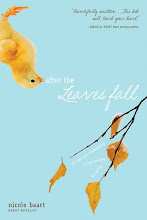~ ~ ~
Philip Pullman and his trilogy of books, The Golden Compass, The Subtle Knife, and The Amber Spyglass, are garnering a lot of attention these days. With the movie release of The Golden Compass this Christmas season, many Christian groups are scrambling to denounce Pullman, his books, and the movie adaptation (which stars Nicole Kidman and is stylistically similar to The Lord of the Rings and the Narnia movies). Is all the hype overblown? Or should we be as concerned about these stories as some sources are trying to convince us we need to be?
His Dark Materials, the title of Pullman’s trilogy, begins with a riveting book about a young girl, Lyra, who overcomes extraordinary danger to save orphaned children from an unspeakable fate. The second book introduces another main character, Will. Together, Lyra and Will uncover the secret of a knife that can literally tear a hole between universes, allowing them to experience an endless array of different worlds. By the time the final book rolls around, Lyra and Will are entrenched in the middle of a mighty rebellion, a war that will determine the fate of the living and the dead.
All three books are well written and very compelling; they are full of adventure as well as many unexpected twists and turns. However, these books are not just an interesting story. Pullman is a talented author on many levels, and throughout the entire trilogy he weaves his own beliefs (or lack thereof) into the narrative with increasing blatancy. By the end of the third book, Pullman has asserted through his complex story that there is no such thing as good and evil, and that God (called the Authority) is an irrelevant deception forced upon people to keep them under control. Ultimately, Lyra and Will witness the downfall of the Authority: “Demented and powerless, the aged being could only weep and mumble in fear and pain and misery…” Bottom line: God dies. Or at least a representation of him dies. Of course, the entire thing is highly allegorical and, in many ways, a critique (again) of the Roman Catholic Church. Poor Catholics, they always get the raw end of the deal.
Obviously, the underlying message of these books is in direct opposition to everything that we as Christians believe. (And it is true that Philip Pullman is an avowed atheist.) But do they threaten the bedrock of Christianity? Should we be afraid of Pullman and his glamorous new movie?
Take a moment to think about The Da Vinci Code. Some Christians went to war over this controversial book and movie, and it could be argued that all the extra attention essentially helped to catapult a poorly written book and a boring, bumbling movie to center stage for months on end. As we vilified the book/movie, we continued to draw interest to it. Is the same thing is happening to The Golden Compass? Does it even deserve our attention? Consider all of the other miserable movies out there that promote promiscuity, violence, addictions, and other disgusting behavior. Christians didn’t rage over the vile American Pie. Why are we singling out this one movie among the countless others that are an equally sickening affront to our awesome God?
But we’re not talking about every other movie. We’re talking about The Golden Compass. And the question is: Should Christians take their kids to see The Golden Compass? Only you can decide that. I will tell you that the subject matter is dark and serious, and certainly not suited for small children. But if your kids are older, and if you intend to watch this movie (or read this trilogy of books) with your children and talk seriously about some of the implications of the underlying moral and theological messages, I think you could spark some intense discussions that result in a deepening of your child’s faith rather than a weakening of it. Because even though these books try to end with a bang, what results is actually a sad and empty whimper. The conclusion feels hopeless. It feels wrong.
Even Pullman, entrenched in atheism and convinced that there is no God, allows his characters to mourn when the Authority dies at the end of The Amber Spyglass. The characters weep and feel the loss of what they believed to be love and purpose in their lives. The sad thing is that they’re wrong. And only we as Christians can speak truth into this painful misconception.
Instead of clutching our battleaxes, why not be the beautiful voice of hope and reason to a world that is so desperately seeking? I believe that our message is far more powerful (and, best of all, full of a mighty and glorious redemption) than anything Philip Pullman tries to promote. Instead of shrinking in indignation and horror, why not engage our culture and offer people what they really seek? After all, we have a God who delivers on His promises, who is the supreme and perfect authority and who will not let us down. And hey, we have a God who isn’t afraid of going head to head with a little Hollywood movie. Believe me: He’ll win, hands down.










Thanks for writing this, it gives me a clearer idea what it is all about. I don't think we will see it (just personal choice, not banning), but I loved reading this. Thanks!!
ReplyDeleteI completely agree with you on this, Nicole :)Thanks for the insight!
ReplyDeleteOh, After the Leaves Fall was AWESOME!! I just finished it today while on campus and have yet to read the preview for the sequel.
Looking forward to the next book!!!
Nicole,
ReplyDeleteI do think you're right on. Though I don't want to give my dollars to hollywood on this movie, I think we do need to be discerning about things. Would I rather the movie not be brought to our town? Yes. Do I hope it fails miserably? Yes. Am I going to stop my daughter from reading it with a cricital eye? No. Am I being two-faced? I honestly don't think so.
Thanks for all your thoughtful comments! I love this sort of dialogue. And I don't think you're being two-faced at all, Miriam. I try to be very choosy about what I spend my money on, and (more importantly) aware of what that money is going to support. It's a tough line to walk--I commend you for it. As for me, I don't know if I'll see the movie or not... Honestly, I think I'd enjoy it, and from what I understand Hollywood took out many (if not all) of the religious (irreligous?) overtones. Still... I don't know. I suppose I'll have to write a review if I do! He-he-he!
ReplyDelete